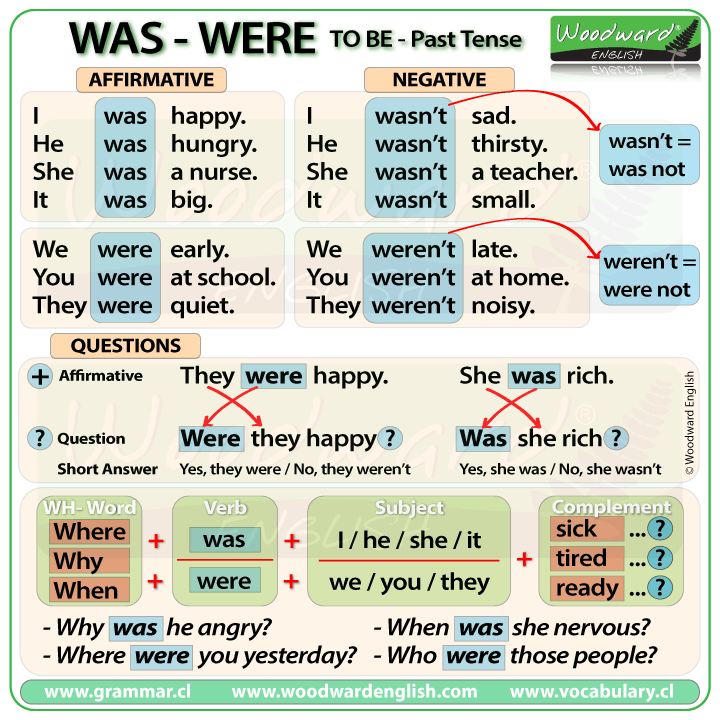

Es la forma pasada de there is / there are.
There was a chair Había una silla
There were some chairs Había unas sillas
Al igual que en el presente simple usaremos 'there was' cuando el sustantivo al que acompaña es un sustantivo contable en singular o uno incontable y 'there were' con los sustantivos contables en plural.
Hay que tener en cuenta que 'there was' y 'there were' no se puede contraer en la forma afirmativa.
Se forma con el pasado del verbo 'to be' en singular o plural, según corresponda.
Afirmativo
singular There was a bank Había un banco
plural There were some banks Había algunos bancos
Negativo
El negativo se forma poniendo el pasado del verbo 'to be' en forma negativa (there was not / there were not). Es frecuente el uso de la forma contraída (there wasn't / there weren't).
singular forma corta There wasn't a shop No había una tienda
plural forma corta There weren't any shops No habían tiendas
singular forma larga There was not a shop No había una tienda
plural forma larga There were not any shops No habían tiendas
Interrogativo
El interrogativo se forma con el verbo "to be" en pasado (was/were) seguido de "there".
Estas preguntas suelen responderse con la forma corta: "Yes, there was/were" o "No, there wasn't/weren't".
singular
Was there a park there? Yes, there was ¿Había un parque allí?Sí (si había)
No, there wasn't No (no había)
plural
Were there any restaurants?
Yes, there were ¿Había restaurantes? Sí (si había)
No, there weren't No (no había)


Copiar esta infografia en su cuaderno
Descargar y mandar al correo
Trabajar en la pagina 19 de su libro.
Descargar y mandar al correo




